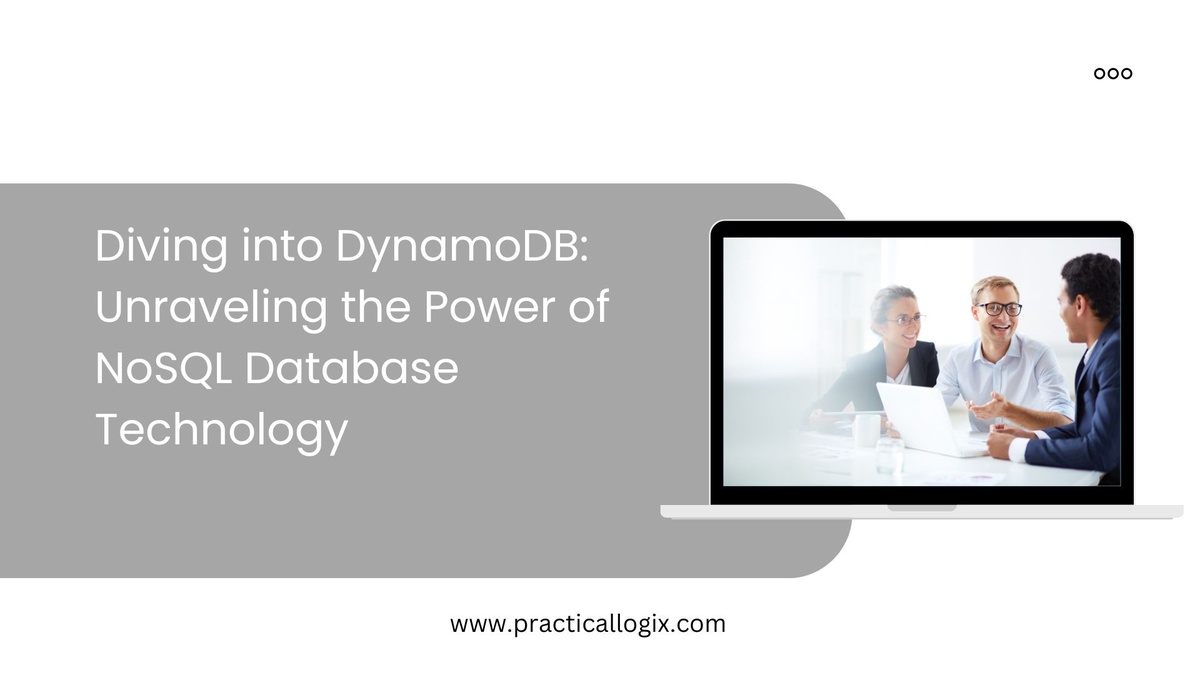In the constantly evolving realm of database management systems, NoSQL databases have emerged as robust alternatives to traditional relational databases. Among the notable players in the NoSQL arena, Amazon DynamoDB stands out as a fully managed, highly scalable, and flexible database service. In this blog post, we will delve into the essential aspects of DynamoDB and examine why it is regarded as a prominent NoSQL solution.
DynamoDB: The NoSQL Dynamo
Understanding NoSQL
To understand the importance of DynamoDB, let's explore the realm of NoSQL databases. In contrast to traditional relational databases, NoSQL databases, as the name implies, do not depend on the structured query language (SQL). Instead, they are built to handle substantial amounts of unstructured or semi-structured data. This adaptability makes them highly suitable for applications with dynamically evolving data needs.
The Power of NoSQL in DynamoDB
DynamoDB, developed by Amazon Web Services (AWS), is a prominent player in the NoSQL landscape, highly regarded for several reasons:
- Scalability: DynamoDB is engineered to seamlessly scale horizontally to accommodate expanding workloads. It automatically distributes data across multiple servers, ensuring optimal performance even as data volumes increase.
- Flexibility: NoSQL databases excel in handling diverse data types, and DynamoDB is no exception. It supports both document and key-value data models, empowering developers to choose the most suitable approach for their applications.
- Low-latency Performance: DynamoDB is renowned for its exceptional low-latency performance, making it an ideal choice for applications that demand quick and predictable response times. This is achieved through the utilization of solid-state drives (SSDs) and a distributed architecture.
- Serverless Architecture: With DynamoDB, the burden of server provisioning, configuration, and maintenance is eliminated. It operates in a serverless environment, enabling developers to concentrate on application development rather than infrastructure management.
DynamoDB is NoSQL: Embracing the Non-relational Paradigm
A fundamental aspect that distinguishes DynamoDB is its NoSQL nature. Unlike traditional relational databases that impose a rigid structure on data, which can hinder dynamic and rapidly evolving applications, NoSQL databases offer the flexibility required to adapt to changing data models while maintaining optimal performance.
DynamoDB's NoSQL architecture enables efficient storage and retrieval of large volumes of data without the limitations of predefined schemas. Developers can store JSON documents, key-value pairs, or any other semi-structured data, empowering them to iterate and enhance their applications more swiftly.
Conclusion
In the realm of databases, embracing the power of NoSQL represents a paradigm shift that numerous developers and organizations are currently undertaking. DynamoDB, a prominent NoSQL database, serves as a prime example of the benefits associated with this approach, including scalability, flexibility, low-latency performance, and a serverless architecture.
As we continue to witness the exponential growth of data in today's digital landscape, the significance of databases capable of handling diverse and evolving data structures becomes increasingly apparent. DynamoDB's NoSQL capabilities position it as a compelling choice for modern applications, offering a robust foundation for developers to construct scalable and responsive solutions.
To summarize, delving into DynamoDB reveals the immense potential of NoSQL database technology, showcasing its ability to meet the demands of contemporary applications and provide a flexible, scalable, and efficient data management solution.


No comments yet